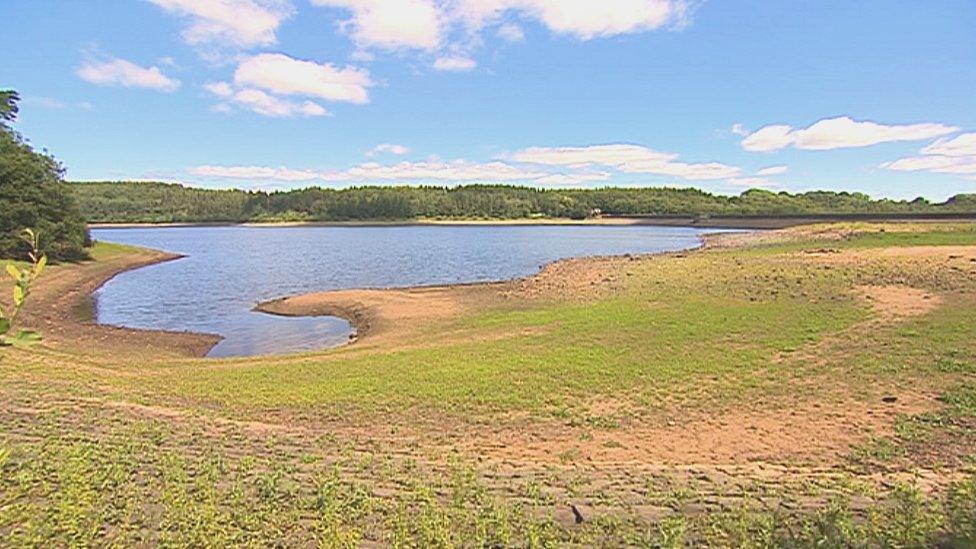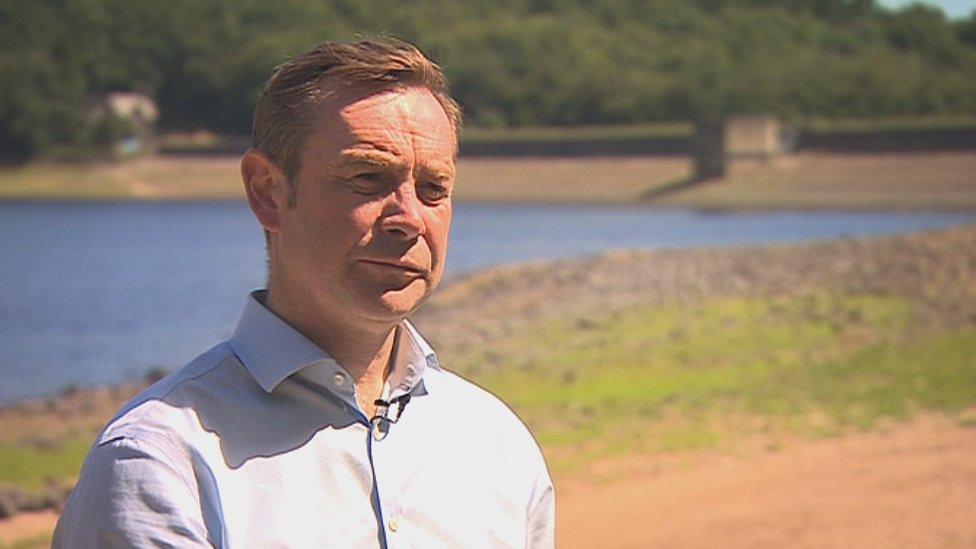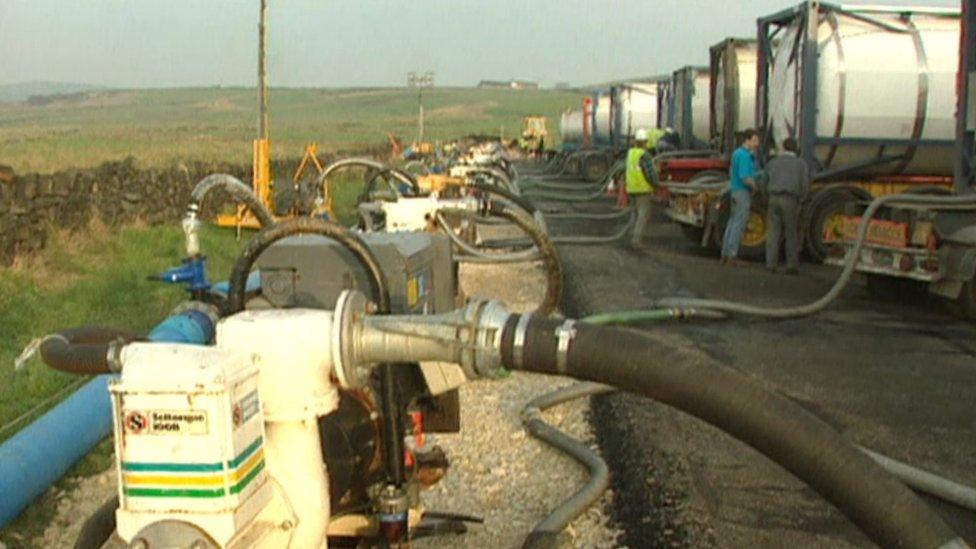Yorkshire Water: Restriction warning as reservoir levels drop
- Published

Decreasing water levels can be seen at Fewston Reservoir near Otley - which is one of three to supply Leeds
Yorkshire Water has admitted it can't rule out restrictions, such as a hosepipe ban, this summer after reservoirs were left lower than average due to a prolonged dry spell.
The firm said the amount of stored water is now the same as in 1995 - when supplies ended up being brought to the area by tankers.
Neil Dewis, head of water, urged customers to consider their usage.
He said restrictions were "just one of the tools" the company could use.

Neil Dewis, from Yorkshire Water, said rainfall in North Yorkshire had been below average since autumn 2021
Mr Dewis said: "We came into March with stocks very nearly full, as we'd expect.
"It doesn't feel like it's been a great summer, but there's been barely any rainfall since then, that's why stocks are currently low."
In the hot summer of 1995, reservoir levels fell to 62% and 400 tankers of water a day were driven into Yorkshire to help bolster supplies.

In 1995 water tankers were driven into Yorkshire from across the country to ease shortages
The firm's reservoirs are now at the same level they were in 1995.
Mr Dewis said the situation was "very different" from that summer 27 years ago and the company had invested in the network, including upgrading leaking pipes.
He said: "We have invested £350m in a grid system that enables us to move water all around the region.
"But if we were to follow a 1995 sequence then yes, we need to take action. Restrictions is one of the tools we have within our drought management plan."
'We look at everything'
He said customers would be asked to cut back on water use where they can and that this may be enough to stop new rules and restrictions.
The company is not currently planning to build another reservoir but Mr Dewis added: "We look at everything."
The firm suggested people reduce their water consumption by:
taking four-minute showers
letting the lawn turn brown
mulching flower beds
reusing water where possible
turning off the tap while brushing teeth

Paul Hudson, climate correspondent, BBC Look North
During the drought of 1995 some parts of the region came within 10 days of running out of water and an increasingly desperate Yorkshire Water resorted to bringing water in by tanker from Kielder reservoir in Northumberland.
But it soon became clear that alongside drought conditions, millions of litres of water were escaping through leaky pipes on their way from the reservoirs to people's homes.
Since then Yorkshire Water has spent hundreds of millions of pounds fixing some of the leaky pipes, plus a unique pipe network which allows them to pump water from east to west and north to south, to balance supply and demand.
So to those who remember the drought of 1995, today's news may well raise a few eyebrows.
True, rainfall has been below average for much of the past 12 months, and spring and early summer has been exceptionally dry.
Demand, though, is much higher compared with 1995 because of a larger population.
Today for example the company aims to supply 1.5 billion litres of water - 200 million litres more than normal - which is the same as the amount supplied to a city the size of Leeds.
So, with little rainfall expected, Yorkshire Water is hoping that consumers limit their demand for water to help them slow down the fall in reservoir levels.
If not, the company say restrictions such as hosepipe bans cannot be ruled out.
Critics will wonder why we are in this position, particularly with climate projections for the coming decades indicating summer droughts are likely to become more frequent.
Should the company spend even more on fixing leaks? Do we need another reservoir?
For now, the company will be hoping that consumers will think carefully about their water usage, in the hope that restrictions can be avoided.
But the longer-term questions are likely to remain as our climate continues to change.

Follow BBC Yorkshire on Facebook, external, Twitter, external and Instagram, external. Send your story ideas to yorkslincs.news@bbc.co.uk, external.
Related topics
- Published10 June 2022
